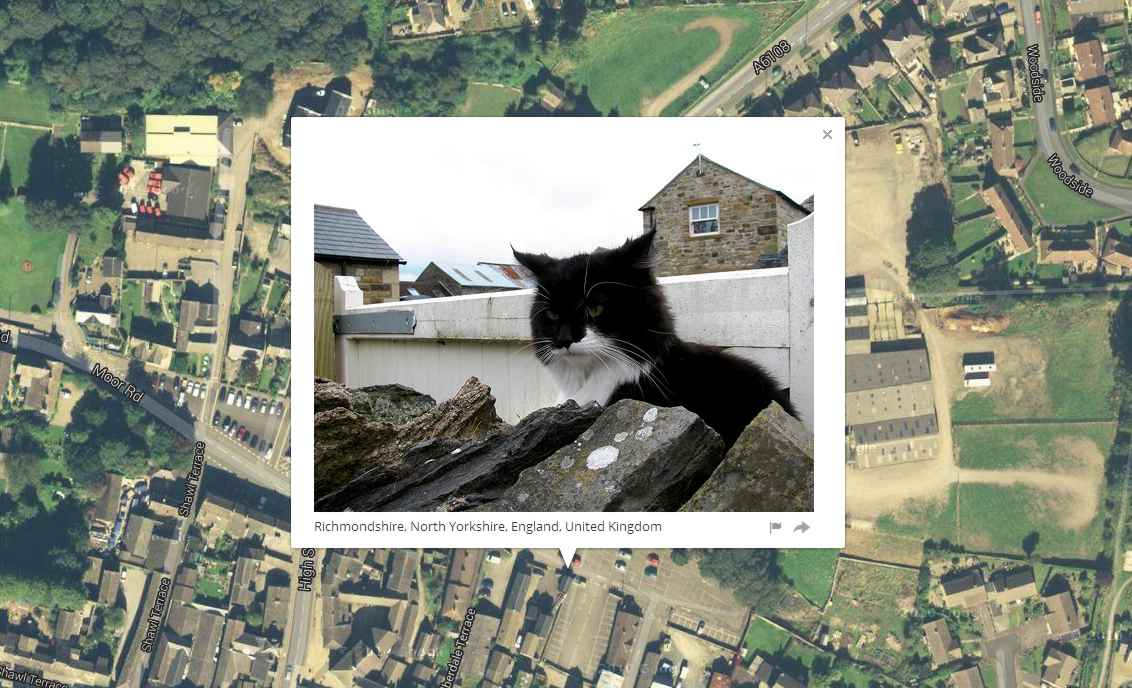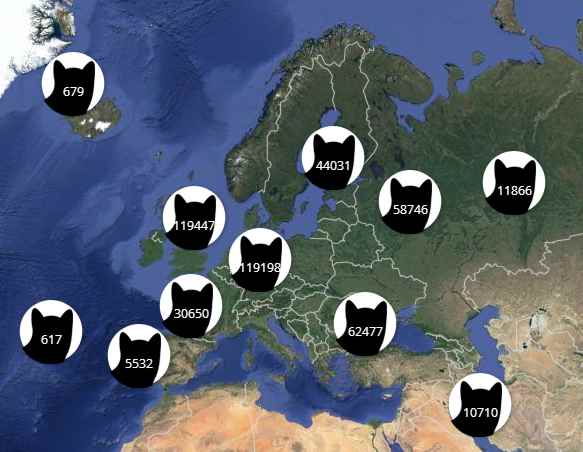| Cat Photos - A Potential Security Risk? |
| Written by Lucy Black | |||
| Sunday, 27 July 2014 | |||
|
A website called I Know Where your Cat Lives uses the latitude and longitude metadata from photos of cats posted websites like Flickr to place the photos on Google maps with remarkable accuracy. Should we find this alarming?
From a programming point of view the project which has taken a sample of 1 million of the more than 15 million images tagged with the word "cat" on public image hosting sites is interesting. The site was built by Owen Mundy, an Associate Professor in the Department of Art at Florida State University, with assistance from ICT major Alissa McShane. The technology employed was fairly standard - the Google Map API, PHP 5, MySQL, Apache, HTML5, CSS3, Twitter Bootstrap 3, Javascript, JQuery, history.js, MarkerClustererPlus, MarkerWithLabel, Python, and SciPy K-means clustering. The images come from Flickr, Twitpic, Instagram, and a few other sites and were placed on Google Maps using the locational metadata automatically uploaded with the photo by its original owner. Metadata is useful stuff - it means that you have a record of the camera details with each photo including the date and time it was taken. However if you take the photo with a phone camera or any camera with a GPS then the metadata also includes a "geotag" which gives the latitude and longitude. This is useful in that you can use it to place your photo at a particular location - to annotate a GPS track say or add to Google Earth. However when you upload the photo to a social site or share it on the web you are often sharing the metadata as well as the photo? How many users are aware of the fact that when they upload a photo they are giving away their location to a few meters?
to point out the ease of access to data and photos on the web. We sought to showcase how readily available social media users’ information and snapshots are to the general public.
It is also stated that the project explores two uses of the internet: the sociable and humorous appreciation of domesticated felines, and the status quo of personal data usage by startups and international megacorps who are riding the wave of decreased privacy for all.
These two uses of the Internet do seem to be in conflict with one another and many will be disturbed by the idea that their photos contain personal data (i.e. where you live) which they were unaware of. The FAQ's tend to minimize the idea that the project is a privacy risk pointing out that: Every cat we visualize could be accessed just as easily by searching popular photo sharing websites. So, no, we do not know where your cat lives, nor do we care. They advise anyone who want their photos removed from the site by increasing the privacy settings of the photos on the sites they were uploaded to.
And if you think it's only experimental and limited in scope, the project is currently seeking funding on Kickstarter to pay for the first year of web hosting so that it can be publicly shared, saying: With 32GB of cat data we are expecting huge amounts of traffic. While we’re no Facebook, one million cats multiplied by tens of thousands of hits a day requires a beefy server to answer all those requests. Who doesn't love cats?
People upload photos not only of cats, but dogs, babies, garden flowers. Never imagining that some cat burglar might be gathering clues for their own projects. More InformationI Know Where your Cat Lives website Related ArticlesSmartphone Apps Track Users Even When Off PlaceRaider - Your Phone Can Steal A 3D Model Of Your Location Google Uses AI to Find Where You Live
To be informed about new articles on I Programmer, install the I Programmer Toolbar, subscribe to the RSS feed, follow us on, Twitter, Facebook, Google+ or Linkedin, or sign up for our weekly newsletter.
Comments
or email your comment to: comments@i-programmer.info |
|||
| Last Updated ( Sunday, 27 July 2014 ) |




